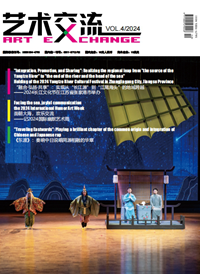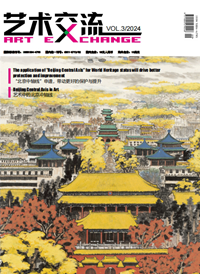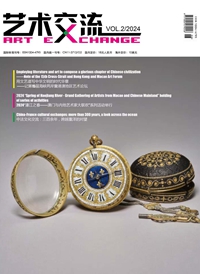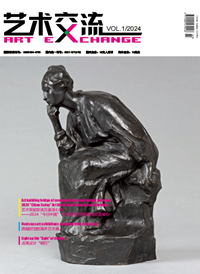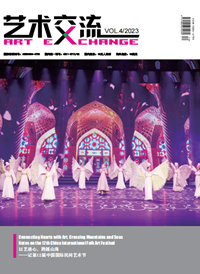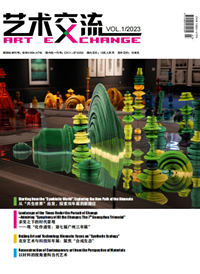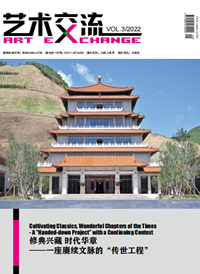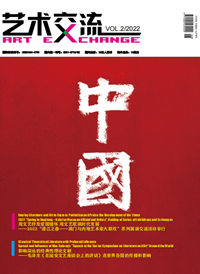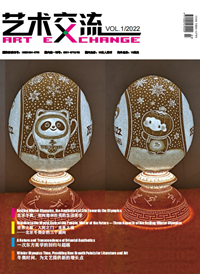Build Common Spiritual Homeland
for Mutual Enjoyment of Chinese Culture
——Record of Roundtable Talk “Retrospect & Prospect
of Art Exchange between Mainland and HK”

Group Discussion

Visit and Communications

Jao Tsung-I's Portrait in Guests' Appreciation
During the Art Forum, roundtable talk “On Hong Kong” became the very unit which aroused best interaction between experts and audiences. Zhang Ziyang, president of this forum, together with Tseng Sun-man, adjunct professor of Department of Culture and Creative Arts of Hong Kong Institute of Education, Rao Shuguang, vice director general of China Film Archive, Pan Lusheng, vice president of China Folk Literature and Art Association, president of Shandong Federation of Literary and Art Circles and Shangdong Craft and Art Academy and Mao Chun Fai, initiator and supervisor of Asian Performing Research, conducted a wonderful discussion concerning how to build common spiritual homeland of Chinese Culture in mainland, Hong Kong, Macao and Taiwan.
Pan Lusheng: The traditional culture lacks sufficient protection and preservation. Now people hardly think about what impact traditional culture will exert on the country and nationality at present and in the future. If a nation lose its cultural seed, it will be extremely difficult to make a U-turn and restore that original stuff. For years, we have been appealing for preserving and rescuing traditional culture, but now we come to realize that it is equally important to turn cultural sources into cultural wealth. In the report of the 18th National Congress of CPC, culture is regarded as productive power. Why? Like a seed, culture will decide how social development is. As I suggest, all the artists and cultural workers should advocate to protect our common cultural source and spiritual homeland.
Mao Chun Fai: In developing cultural creative industry, service is an important part. But it never simply means making audiences happy. HK counterpart once adapted the novel Love in a Fallen City by Eileen Chang into a drama which was later invited to Shanghai and Beijing for a tour performance. As it was in Cantonese, is it possible to present this drama in mainland without a mandarin version? Our friends in Beijing said that they had full confidence and it turned out to be a great success. To me, the most critical thing is the drama’s charm to touch audience’s heart instead of cultural or linguistic differences. Our distinct character and acting on the stage was fully recognized by the local audiences. On this basis, we could conduct further exchange with the experts in the mainland who gave a profound analysis and decide to learn from us. It was an encouraging experience, and the genuine cultural value just lies in communication and mutual appreciation. With more admiration and encouragement, other things hardly matter. As the best witness, audiences empowered us with their recognition and acceptance.
Tseng Sun-man: Hong Kong is blessed with favorable condition, art freedom and standard system. Recently, many students from mainland choose to study in Hong Kong, to which we may make a bigger contribution. Moreover, Hong Kong often becomes the premier city for more and more art presentation by mainland artists, and our cooperation is of great significance. As to Chinese culture’s Going-out, we think it demands fostering art management talents with inter-cultural communications, to which the artists in HK may contribute as well.
Rao Shuguang: The United States made the globalization of its films as a national strategy as early as in the 1920s. Now, USA has promoted not only its films, but its criterion about film all over the world. Many Chinese youngsters will naturally take Hollywood type to judge the quality of a film. In the latest three years, I have managed to see nearly all the productions in the mainstream cinema lines in USA. Then I have two key impressions. American film is redefining what a film is. With the advantages in capital and high-technology, it has heightened the scale of film production by a large margin. American film is more and more like a play game. What shall we do in face of such a situation? The box office must be secured, but we must be aware that a film is the promotion of a national image and has much to do with national cultural security. Can you imagine what kind of deadly harm will be done to Chinese culture, if the total of Chinese screens increased by two daily, if Hollywood films are screened everywhere? It has become a must for us to the market share of domestic films. Furthermore, more than merely making a fortune, film industry development should aim at providing nutrition and comfort for our hearts. Apart from box office, a film needs to be evaluated by cultural target and spiritual value, both of which will ensure the sustainable development. Personally speaking, I am still optimistic about the development of Chinese films. In the global vision, there is Hollywood and Bollywood. So long as we can integrate human resources, market demand and common cultural tradition in films, it will be possible to make a “Chinawood”, a new film center in the world.



